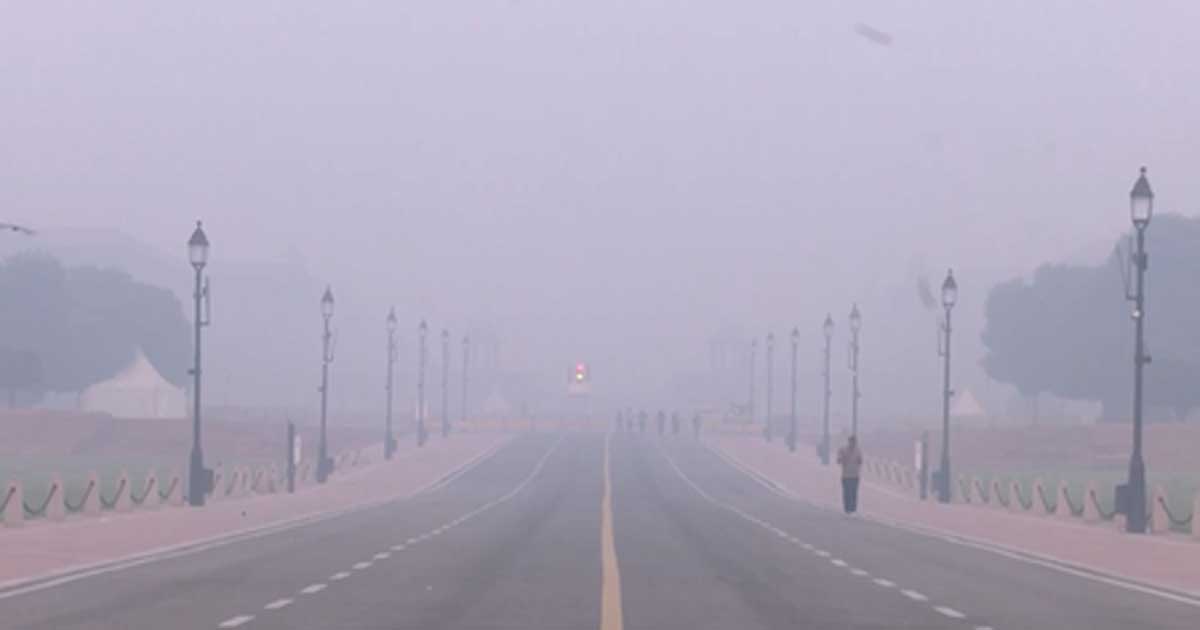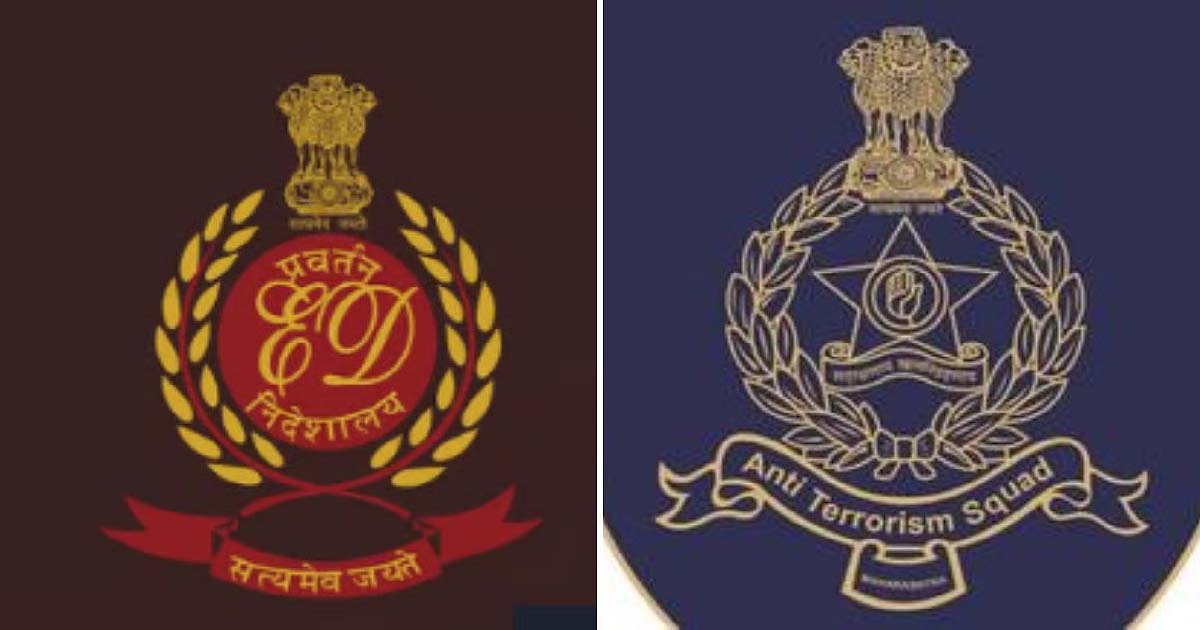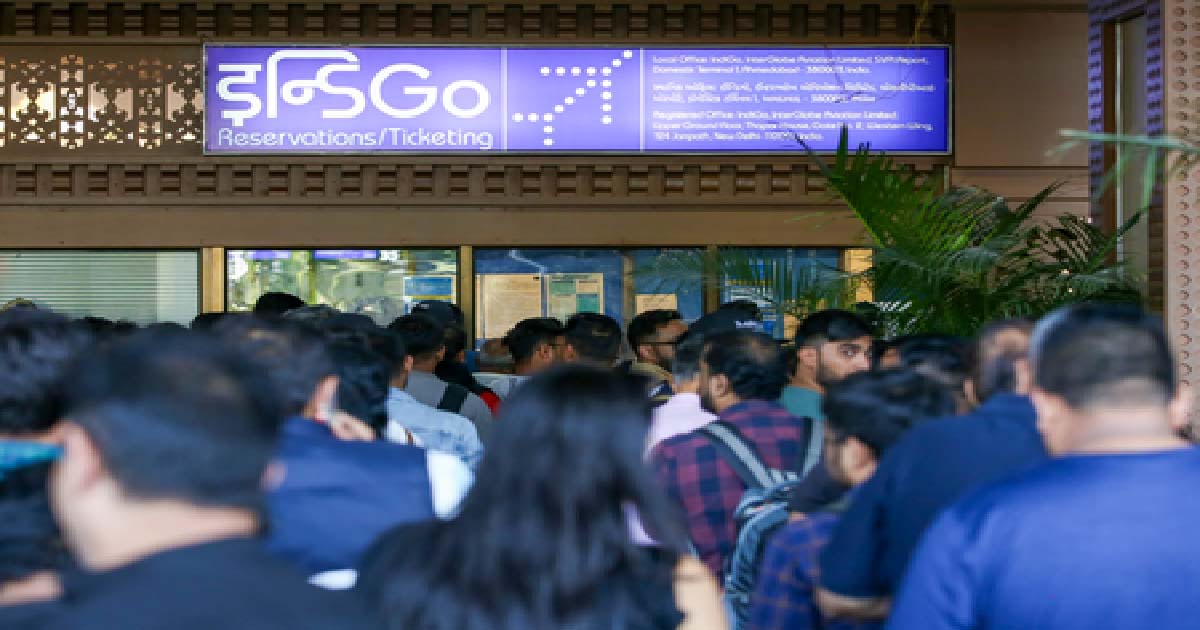National News
Delhi-NCR’s air quality ‘very poor’ after Diwali fireworks

New Delhi, Oct 21: The overall Air Quality Index (AQI) in Delhi-NCR remained in the ‘very poor’ category, reaching 400 on Tuesday morning, a day after Diwali festivities, according to data from the Central Pollution Control Board (CPCB).
While the overall AQI stood at 347, several areas recorded levels in the ‘severe’ category.
As per CPCB classifications, AQI between 0-50 is considered ‘good’, 51-100 ‘satisfactory’, 101-200 ‘moderate’, 201-300 ‘poor’, 301-400 ‘very poor’, and 401-500 falls under the ‘severe’ category.
Several Delhi localities reported alarming AQI levels: Narela (354), Najafgarh (334), Mundka (357), Mandir Marg (325), Major Dhyan Chand National Stadium (358), Lodhi Road (334), Jawaharlal Nehru Stadium (317), Jahangirpuri (404), ITO (345), Dilshad Garden (346), Dwarka Sector 8 (333), Mathura Road (341), Bawana (418), and Anand Vihar (352), according to data from the SAMEER app developed by the CPCB.
In Noida, the air quality also declined sharply, entering the ‘very poor’ range. Sector-wise AQI readings were Sector 125 (326), Sector 62 (307), Sector 1 (322), and Sector 116 (340).
Residents across the Delhi-NCR region woke up to toxic air on Monday morning, with pollution levels worsening following widespread bursting of firecrackers on Diwali eve. On Diwali morning at 8 a.m., Delhi recorded an AQI of 335, indicating a significant decline in air quality.
Gurugram also witnessed poor air quality. AQI levels were reported at 338 overall, with specific areas like Gwal Pahari (347), Sector 51 (346), and Vikas Sadan (320) recording similar trends.
Despite a ban on firecrackers in Delhi since 2020 to combat winter pollution, the Supreme Court this year allowed the use of green crackers from October 18 to 20, within limited time slots — 6 a.m. to 7 a.m. and 8 p.m. to 10 p.m. However, these rules were widely flouted, with firecrackers being used well outside the permitted windows.
In response to the deteriorating air quality, the Commission for Air Quality Management (CAQM) in Delhi-NCR activated Stage-II of the Graded Response Action Plan (GRAP), aimed at curbing pollution levels and safeguarding public health.
Crime
Police bust interstate mobile theft gang; 40 high-end phones stolen in Delhi concert recovered

New Delhi, Dec 11: The Delhi Police Crime Branch has arrested four members of an interstate mobile phone theft gang and recovered 40 high-end smartphones, many of which had been stolen from a December 7 concert at IGI Stadium, officials said on Thursday.
A team from the Eastern Range-I of the Crime Branch, led by Inspector Ashish Sharma and supervised by ACP Sunil Srivastav, tracked the suspects for nearly 48 hours before intercepting them near Yamuna Vihar Metro Station on December 9.
The police said the accused kept shifting locations to evade surveillance, forcing the team to maintain continuous technical tracking.
The arrested men have been identified as Salman (35), Imran (28), Shahrukh (32) and Wasim (25), all residents of Ghaziabad.
Police recovered eight Apple iPhones — including iPhone 17 Pro Max and the iPhone 16 series along with seven premium Samsung models such as the Galaxy S24 Ultra and Fold 6.
The remaining phones belonged to OnePlus, Vivo, Oppo, Redmi, POCO and Motorola.
Several of the recovered devices have already been matched with FIRs registered at Prashant Vihar, Shahbad Dairy and IP Estate police stations.
According to officers, the gang targeted crowded public places such as concerts, metro stations, bus stops, bars, marketplaces and railway stations.
During interrogation, the alleged kingpin, Salman, confessed that they focused on events frequented by young people carrying expensive phones. Police said the group had been operating across Delhi-NCR for several months.
“The stolen phones were then swiftly shifted to Ghaziabad (Uttar Pradesh), where the gang had established contacts in the grey market. The high-end devices were sold at throwaway prices within hours of the theft, making recovery extremely difficult,” the police said in its press note.
“Salman admitted that the gang had been actively operating in Delhi-NCR for the past several months and had committed scores of such thefts, earning them lakhs of rupees with almost no risk of getting caught until the present arrest,” it added.
Police said the four have been booked under Sections 35(1)(E) and 106 of the Bharatiya Nagarik Suraksha Sanhita (BNSS).
“This operation underscores the Delhi Police Crime Branch’s commitment to curbing organised crime and apprehending hardened criminals. Efforts are ongoing to apprehend the accused’s associates and others, and to verify additional cases linked to the accused,” said DCP Vikram Singh.
Maharashtra
ED, ATS Conduct Raids Across Maharashtra & Delhi Over Suspected Terror-Funding

Mumbai: The Enforcement Directorate (ED) on Thursday carried out a coordinated search operation in Borivali village near Padgha in Thane district, with assistance from the Maharashtra Anti-Terrorism Squad (ATS), officials said.
The operation, which began in the early hours of Thursday, extended to multiple residential premises as ED officials probed suspected terror funding and related financial transactions. ATS personnel provided on-ground support to coordinate the ED searches.
According to ED officials, the searches were conducted at nearly 40 locations across Maharashtra including Padgha, Pune, and Malegaon as well as in Delhi. The searches are linked to suspected financial transactions associated with terror-related activities.
The ED had recently registered an ECIR linked to the NIA’s ISIS terror module case involving Saquib Nachan, as well as the Pune ISIS module case. While ATS is simultaneously investigating the same modules, it is assisting the ED by sharing intelligence, leads, and field updates, helping ensure that the ongoing search operations are thorough, coordinated, and synchronised.
Officials said the operation is ongoing, with teams continuing to probe the suspected financial networks connected to the terror modules.
Business
IndiGo offers travel vouchers worth Rs 10,000 to severely impacted customers

New Delhi, Dec 11: Limping back to normalcy, IndiGo on Thursday offered travel vouchers worth Rs 10,000 to customers who were severely impacted during the flight disruption earlier this month.
The airline “regrettably acknowledged” that several people travelling between December 3 and 5 were stranded for many hours at major airports nationwide. The crisis caused thousands of cancellations and delays, keeping passengers in long queues.
“We will offer travel vouchers worth Rs 10,000 to such severely impacted customers. These travel vouchers can be used for any future IndiGo journey for the next 12 months,” an IndiGo spokesperson said in a statement.
The compensation is in addition to the commitment under the existing government guidelines, as per which, IndiGo will provide compensation of Rs 5000 to Rs 10,000, depending on the block time of the flight, to those customers whose flights were cancelled within 24 hours of departure time.
IndiGo also noted that “all necessary refunds for cancelled flights have been initiated”, including bookings through a travel partner platform.
The airline said that it is “committed” to restoring a “safe, smooth, and reliable” experience.
Earlier in the day, IndiGo Chairman Vikram Singh Mehta said that the airline’s Board will bring in external technical experts to work with the management and identify the root causes behind last week’s massive flight disruptions.
He said the experts will help ensure that such large-scale operational failures never happen again.
Meanwhile, the company stated that all destinations in the airline’s network have been fully connected since December 8, and operations have stabilised since December 9.
On December 8, it flew more than 1,750 flights with just one same-day cancellation, and on December 9, it had over 1,800 flights and zero cancellations. Over 1,900 flights took off on December 10, while just two were cancelled on the same day.
On Thursday, IndiGo said it expects “to operate more than 1,950 flights with approximately 300,000 customers”.
-

 Crime3 years ago
Crime3 years agoClass 10 student jumps to death in Jaipur
-

 Maharashtra1 year ago
Maharashtra1 year agoMumbai Local Train Update: Central Railway’s New Timetable Comes Into Effect; Check Full List Of Revised Timings & Stations
-

 Maharashtra1 year ago
Maharashtra1 year agoMumbai To Go Toll-Free Tonight! Maharashtra Govt Announces Complete Toll Waiver For Light Motor Vehicles At All 5 Entry Points Of City
-

 Maharashtra1 year ago
Maharashtra1 year agoFalse photo of Imtiaz Jaleel’s rally, exposing the fooling conspiracy
-

 National News1 year ago
National News1 year agoMinistry of Railways rolls out Special Drive 4.0 with focus on digitisation, cleanliness, inclusiveness and grievance redressal
-

 Maharashtra1 year ago
Maharashtra1 year agoMaharashtra Elections 2024: Mumbai Metro & BEST Services Extended Till Midnight On Voting Day
-

 National News1 year ago
National News1 year agoJ&K: 4 Jawans Killed, 28 Injured After Bus Carrying BSF Personnel For Poll Duty Falls Into Gorge In Budgam; Terrifying Visuals Surface
-

 Crime1 year ago
Crime1 year agoBaba Siddique Murder: Mumbai Police Unable To Get Lawrence Bishnoi Custody Due To Home Ministry Order, Says Report












